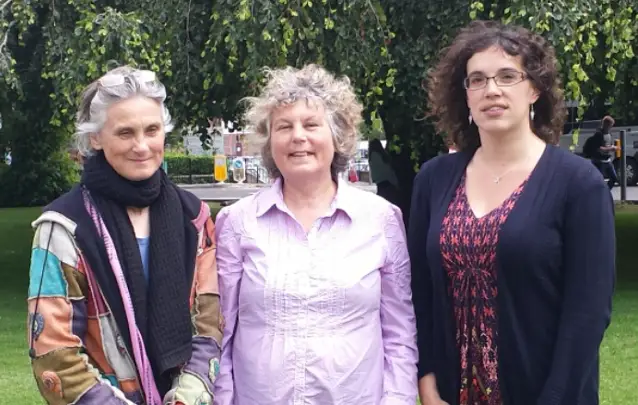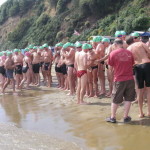Maggie has the latest update on the Plastics Challenge. Ed
After a very challenging month trying our best to avoid using plastic packaging, each of the three participants in the Isle of Wight Plastic Challenge has decided on some important changes she and her household can make in their daily lives to reduce the amount of single-use plastic they buy.
You may think recycling is the solution, but it is not that simple. There are many different types of plastic, and each has to be identified and recycled by a different process. We are hoping to learn more about this from the experts soon.
Facing the biggest challenge
As the mother of three young children, full-time teacher, Leader of the Isle of Wight Green Party and now the Green Party’s Education spokesman, Vix Lowthion faces the biggest challenge.
Yet she has managed to cut down on single-use packaging this month, as her recycling bin shows.
She declares,
“From now on, whenever I can, I’m going to apply the three principles: Reduce, Reuse and Recycle, in that order of priority.”
Horrified at plastic packaging for fruit and veg
Maggie, a vegetarian, has been horrified at the amount of plastic packaging used in supermarkets to wrap fruit and vegetables.
She says,
“There’s something wrong when even the cucumbers are wrapped so tightly in plastic they cannot breathe.
“The main reasons for all this packaging seem to be time and convenience: loose fruit and vegetables are weighed at the till which takes a little extra time and effort. Yet think of all the time, effort and resources that could be saved by not producing unnecessary plastic in the first place. Surely only the most delicate of fruit needs to be packaged.”
Maggie is taking a holistic approach, she says,
“Buying vegetables and seasonal fruit direct from the grower, or from a farm shop selling local produce, considerably reduces food miles, using far less fuel in transport and causing far less air pollution and greenhouse gases. It also helps the local economy and provides local employment.”
Ironically, one of the best places on the Island to grow fruit and vegetables, the Arreton Valley, has been granted a licence for oil exploration, to the consternation of many Islanders, who fear it will lead to fracking.
Maggie says,
“Cutting down on the vast quantity of plastic packaging people use in their daily lives could reduce demand for oil and save our beautiful landscape and water supplies from the toxic chemicals used to fracture rocks.”
Ethical consumer
Jenni, an ethical consumer for many years, is already buying produce from local farm shops and refills of environmentally-friendly laundry and washing-up liquid from a local scoop shop.
These retailers sell breakfast cereals, rice and other grains, flour, dried fruit, nuts, dried soup and other products from large tubs. The customer uses a scoop to transfer the item into a bag.
If only plastic bags are provided, you can ask to use your own paper bag or reusable plastic container, and the assistant can put it on the scales before you fill it.
Jenni loves yogurt and was concerned about all the single-use plastic-lined pots she and her husband were using. She recently bought a yogurt maker and says:
“Thanks to the Plastic Challenge, we will be sending much less plastic to the recycling. I’m relieved that the full-cream milk we use comes in a cardboard carton, not a plastic bottle.”





